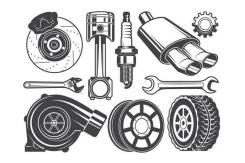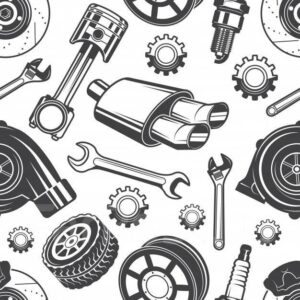The Role of Distributors in Modern Manufacturing Supply Chains
Manufacturing supply chains have become increasingly complex, and the role of distributors has evolved in response. Distributors are the crucial link between manufacturers and the end consumers of products, ensuring the smooth flow of goods from production facilities to retailers, wholesalers, and ultimately to consumers. As businesses strive for efficiency, cost savings, and improved customer satisfaction, distributors are playing an ever-more integral role in modern manufacturing supply chains. In this article, we will explore the various functions that distributors serve, their impact on supply chain management, and how platforms like AppointDistributors.com are redefining the distributor landscape.
Understanding the Role of Distributors in Supply Chains
At its core, a distributor is an intermediary that buys products from manufacturers in bulk and resells them to retailers, wholesalers, or directly to customers. Distributors operate across multiple industries, including consumer goods, electronics, industrial equipment, and more. The role of a distributor, however, extends far beyond just selling goods; it encompasses various functions that contribute to the efficiency and effectiveness of the entire supply chain.
- Inventory Management One of the most important functions of a distributor is inventory management. Manufacturers produce goods in large quantities, often in centralized locations, but they may not have the infrastructure to distribute these products directly to customers in different geographical areas. Distributors bridge this gap by holding stock in local warehouses and managing the inventory, allowing manufacturers to focus on production while ensuring products are readily available when needed. Distributors maintain an adequate level of inventory to meet demand fluctuations, which helps minimize stockouts and backorders.
- Market Reach and Access Distributors provide manufacturers with access to broader markets, both domestic and international. For manufacturers, expanding their market presence can be a daunting task, as it requires extensive knowledge of local regulations, consumer preferences, and distribution networks. Distributors, especially those with established regional or global reach, offer manufacturers an immediate solution to this challenge. They already have the sales channels, retail networks, and customer relationships in place to quickly introduce new products to the market.
- Sales and Marketing Support Modern distributors often offer sales and marketing support services to manufacturers. These services can include promoting products, running targeted advertising campaigns, and offering promotional materials to retailers. Distributors also help manufacturers understand market trends and customer preferences, providing valuable feedback that can influence product development and positioning. By collaborating with distributors, manufacturers can effectively tap into local knowledge and customize their approach to each region’s unique market demands.
- Logistics and Delivery Efficient logistics are essential to the smooth operation of any supply chain, and distributors play a central role in this aspect. They manage the transportation of products from manufacturers to various locations, ensuring timely and cost-effective delivery to customers. Distributors may use third-party logistics (3PL) providers or operate their own fleet of vehicles to streamline this process. By handling transportation, distributors help reduce lead times and optimize costs, which benefits both manufacturers and end consumers.
- After-Sales Service and Customer Support Another key function of distributors is providing after-sales service and customer support. Distributors are often the first point of contact for customers facing issues with a product. They are responsible for managing product returns, offering warranties, and addressing customer complaints. This service adds value for customers and strengthens relationships with both the manufacturer and the end consumer. Distributors also provide technical support, maintenance, and training services for complex or industrial products, which can be crucial for the successful use of a product.
- Financing and Credit In many cases, distributors provide manufacturers and customers with flexible financing options. By offering credit terms, distributors enable retailers to purchase products without upfront payments, improving cash flow for both the distributor and the retailer. Similarly, distributors may offer manufacturers favorable payment terms, ensuring that products can be moved quickly through the supply chain without straining financial resources.
The Impact of Distributors on Modern Supply Chains
Distributors play a pivotal role in the modern supply chain ecosystem by ensuring that the products reach the right markets at the right time, in the right quantity, and at the right price. Their ability to adapt to changes in the global economy and technology has made them essential partners for manufacturers.
- Globalization and Market Expansion As manufacturers seek to expand their reach globally, distributors help facilitate entry into international markets by providing knowledge of local markets and navigating complex logistics networks. Distributors that have global networks or operate in specific regions can help manufacturers reduce entry barriers and capitalize on emerging market opportunities.
- Digital Transformation and E-Commerce The rise of e-commerce has transformed the way products are sold and distributed. Distributors have adopted digital tools and platforms to streamline their operations and reach a broader customer base. Many distributors now have online portals where customers can place orders, track shipments, and access product information. These digital platforms also allow for real-time inventory management, helping to reduce stockouts and optimize the supply chain.
- Supply Chain Resilience and Risk Management The COVID-19 pandemic exposed vulnerabilities in global supply chains, particularly in terms of reliance on a few key suppliers and distributors. In response, distributors have worked to diversify their sources of supply, implement backup plans, and develop more resilient supply chain strategies. By maintaining a diversified network of suppliers and logistics partners, distributors can mitigate the risks of future disruptions and continue delivering products to the market, even during challenging times.
- Sustainability and Ethical Sourcing Today, more consumers and manufacturers are prioritizing sustainability and ethical practices in the supply chain. Distributors are increasingly focusing on sourcing products from manufacturers who adhere to environmental and ethical standards. Many distributors are also working to reduce their own carbon footprints by optimizing transportation routes and adopting greener practices in warehouses and distribution centers.
The Role of AppointDistributors.com in Modern Supply Chains
Platforms like AppointDistributors.com are revolutionizing the way manufacturers and distributors connect and collaborate. By providing a centralized platform for manufacturers to find, appoint, and manage distributors, AppointDistributors.com offers a streamlined solution to the challenges of identifying and establishing partnerships with distributors. The platform enables manufacturers to:
- Identify Qualified Distributors: Manufacturers can search a database of pre-vetted distributors with the necessary expertise, experience, and local market knowledge to effectively distribute their products.
- Track Distributor Performance: With integrated tools for monitoring distributor performance, manufacturers can assess the effectiveness of their distribution network, track sales, and measure the success of marketing initiatives.
- Strengthen Relationships: The platform fosters stronger relationships between manufacturers and distributors by facilitating easy communication, providing insights into distributor needs, and helping resolve issues in a timely manner.
- Expand Market Reach: Manufacturers can tap into new markets and regions by leveraging the network of distributors available on AppointDistributors.com, helping them expand without the need for large-scale infrastructure investments.
Conclusion
In modern manufacturing supply chains, distributors are not just intermediaries; they are key players who enhance efficiency, reduce costs, and help manufacturers navigate the complexities of global markets. By providing essential services like inventory management, sales and marketing support, logistics, and after-sales services, distributors ensure that products reach consumers in the most effective and timely manner possible. Platforms like AppointDistributors.com further strengthen these partnerships, offering tools and resources that facilitate better connections and collaboration between manufacturers and distributors. As the supply chain landscape continues to evolve, distributors will remain vital to the success of manufacturers and the satisfaction of consumers worldwide.
Enquire – Appoint Distributors
Mob – +91 9560536203
Guest post – Fresh voice hub













